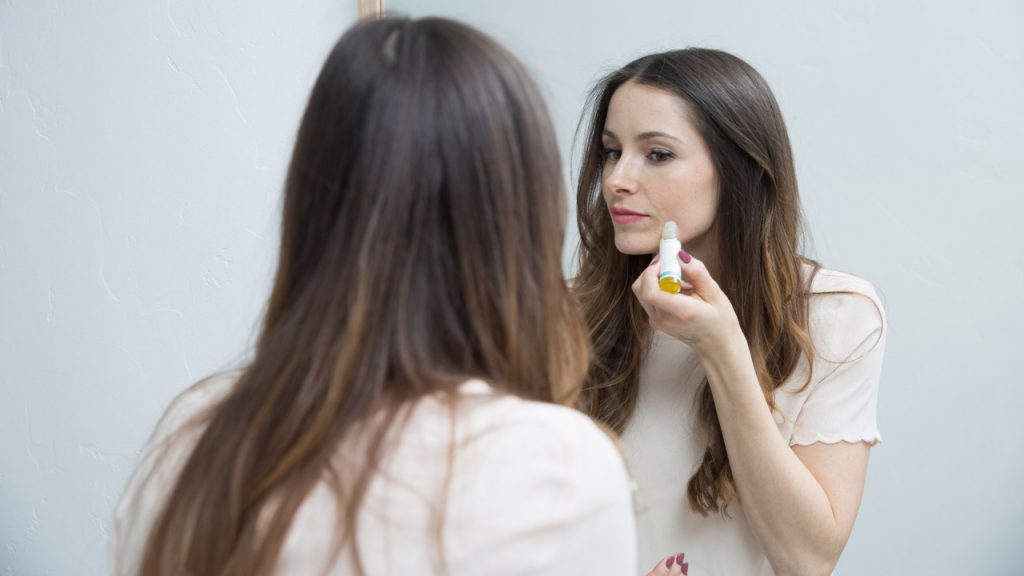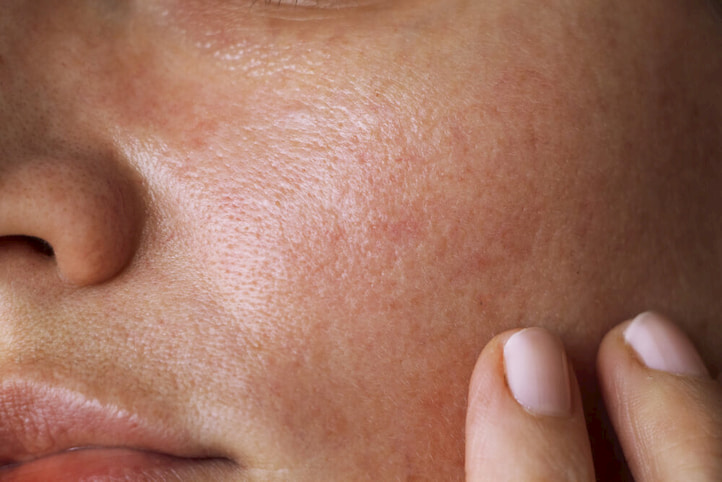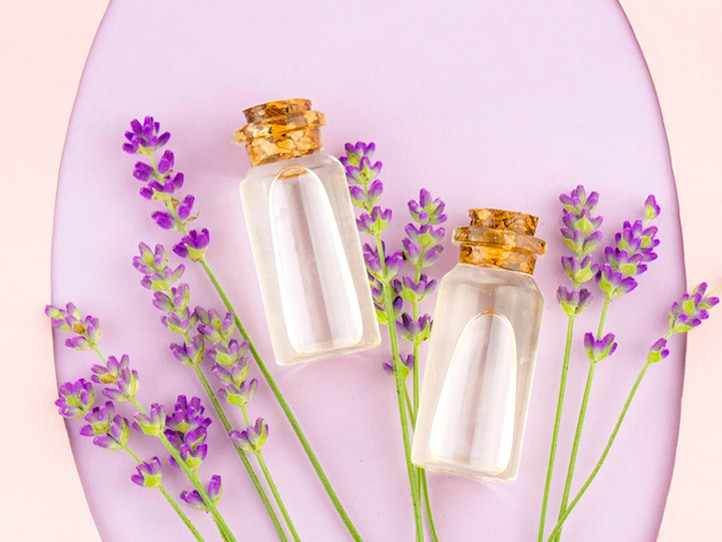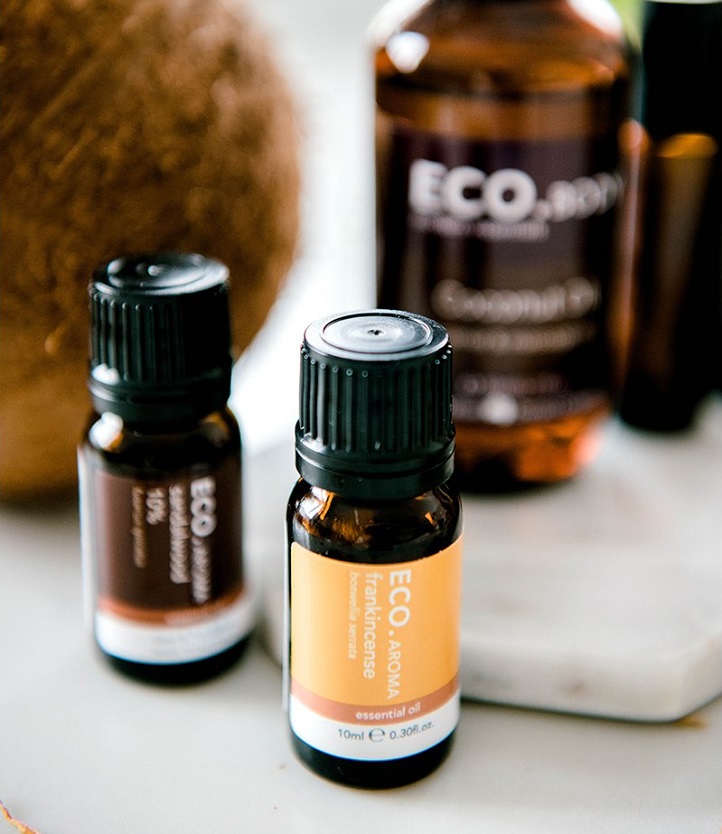Essential Oils That Can Help Reduce the Appearance of Acne Scars

Source: Pinterest.com
Most people at some point in their life have to deal with acne. It is a common skin condition that can lead to spots, oily skin and sometimes skin that is painful to touch. Although acne is usually a temporary problem, the skin scars that it leaves can be permanent. Scars are the result of the skin’s normal healing process after it has been damaged by a wound or injury. They are the result of a break in the follicle wall. When the rupture occurs near the skin’s surface, the lesion is usually minor and heals quickly. But when there is a deep break in the follicle wall, the lesion is often more serious and more complicated to treat. The worse the inflammation on the skin, the more likely scarring is to occur.
To repair the damage done to the derm, the skin forms new collagen fibres, which gives the skin its strength and flexibility. Unfortunately, this “repair job” never looks as smooth and flawless as before the injury. That is where treatments come in. There is a range of over-the-counter treatments, like spot gel and drying lotions, that you can use to improve your acne scars, but these products can also take their toll on your skin. Luckily there’s one solution that is totally natural and less likely to trigger sensitive skin – essential oils.
Essential oils can be found in many natural skincare products today, but by using them in their pure form, you can get all their benefits without any additives or irritating chemicals. Essential oils work by regenerating the skin cells of damaged skin, improving the appearance of scars and improving skin health. If you want to know what essential oil is good for acne scars, here’s a great list.

Source: Hudabeauty.com
Tea Tree Oil
Tea tree oil is one of the best essential oils for acne scars. It has enormous healing potential and this is thanks to its antibacterial, antiviral, and antifungal effects. The antioxidant and antimicrobial activity of tea tree oil helps accelerate the wound-healing process. Its ability to boost immunity is also helpful when caring for wounds and scars. You may have to use tea tree oil consistently up to a month before you see results. If you have allergies, use the oil with caution as it has the potential to cause an allergic reaction.
Lavender
Lavender essential oil helps prevent acne scarring by promoting cell and tissue growth. It has antioxidant, antibiotic and antiseptic properties. A study has shown that lavender essential oil promotes wound healing by increasing collagen and regenerating tissue, especially in the early phase of treatment. When it comes to how to use lavender essential oil for acne scars, topical application can help to speed up the wound closure and promote wound shrinking. You may be able to see results in as little as one week. Lavender is specifically beneficial in the beginning phase of scar treatment.

Source: Pmrpressrelease.com
Geranium
Geranium essential oil helps relieve inflammation, even out skin tone and encourage new cell growth – all useful characteristics for treating scars. Its antimicrobial, antiseptic and antibacterial wound-healing proprieties are also helpful in making acne scars less visible. It may take at least a month to see results with geranium oil.
Frankincense
The benefits of frankincense essential oil include soothing the skin, evening out skin tone and killing bacteria – all of which help to reduce the appearance of scars. The active ingredient in Frankincense, boswellic acid, has also shown to have anti-inflammatory benefits. You may be able to start seeing results after a month of using this essential oil.

Source: Ecomodernessentials.com.au
Cedar Wood
The rejuvenating effect of cedarwood essential oil can do wonders for various skin conditions, including scars. Cedarwood essential oil also has the ability to reduce inflammation and relieve pain. A month of consistent use may give you satisfactory results.
Neroli
Used for a variety of skincare conditions, neroli is also one of the most useful essential oils for acne scars. It helps reduce pain and inflammation and its antimicrobial and antioxidant properties make it a powerful healer. You may see results after a month of use. However, keep in mind that neroli has the potential to cause skin irritation and allergic reactions.
Note that acne scars are a result of damaged pores and injured skin tissue, and like many cuts, bruises or body scars, healing won’t happen overnight. While treating the scars, you should also wear sunscreen, use makeup lightly, and avoid picking at your skin. It may also be a great idea to talk to your dermatologist before trying any treatment or product to prevent any damage to your skin.







![AFX Sauber F1 C44 Stake No24 Slot Car [22092]](https://www.availableonline.com.au/wp-content/uploads/2025/06/6ccd9e30-c6fa-4910-9081-5fcc3ba80b04__60843-520x245.jpg)